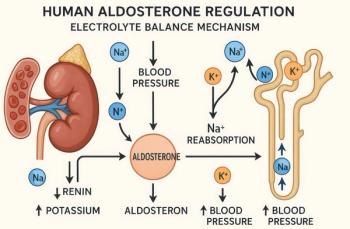
Blood Pressure Drop During Bypass Surgery Tied to Cognitive Woes
BALTIMORE -- Mean arterial pressure declines during a coronary bypass surgery, but a mean drop of 27 mm Hg or more may increase the risk of post-operative cognitive dysfunction.
BALTIMORE, June 11 -- Mean arterial pressure declines during a coronary bypass surgery, but a mean drop of 27 mm Hg or more may increase the risk of post-operative cognitive dysfunction.
In a series of 15 bypass patients who had a high risk of stroke, the mean decline was associated with a mean decrease of 1.4 points on the Mini-Mental State Examination, according to Rebecca F. Gottesman, M.D., of Johns Hopkins here, and colleagues.
And when a patient who had an acute stroke during surgery was excluded from analysis, a decrease of 18 mm Hg or less was associated with a one-point improvement in mean MMSE (P =0.04), they reported online today in the Archives of Neurology.
One to two days before surgery patients were assessed with a series of cognitive tests including the MMSE and Trail Making Tests A and B. Additionally, function was evaluated with the modified Rankin scale. All assessments were repeated three to five days postoperatively.
The age range of participants was 57 to 81 and the median preoperative MMSE score was 28. One patient, who had an acute stroke perioperatively, was found to be an outlier on all cognitive tests. This outlier patient was included in some, but not all analyses.
Although there were no significant changes in other cognitive tests, there was a similar pattern-patients who had mean arterial pressure drops of 27 mm Hg or more typically took about 25 seconds longer to complete to Trail Making Test A, compared with a mean increase of 12.6 seconds for patients who had a smaller drop in pressure (P =0.70).
Similarly, for Trail Making Test B, the increase in time to complete was 73 seconds versus 52 seconds for those whose mean arterial pressure dropped less than 27 mm Hg (P =0.77).
But a subset analysis of 11 patients tested again a month after surgery suggested that the impact of mean arterial pressure drops diminished with time. The average MMSE score was just 0.2 points worse than baseline for those who had a mean drop of at least 27 mm Hg, Dr. Gottesman said.
The authors concluded that even though the sample was small and measured effect did not always reach statistical significance, "the direction of performance is uniformly the same across multiple cognitive tests (either with or without exclusion of an apparent outlier), further supporting an association between change in blood pressure and change in cognitive performance."
In addition to the limitation imposed by a small sample size, Dr. Gottesman noted that the subjects were all high risk so it is unknown if the observation can be extended to lower risk patients.
Newsletter
Enhance your clinical practice with the Patient Care newsletter, offering the latest evidence-based guidelines, diagnostic insights, and treatment strategies for primary care physicians.

































































































































